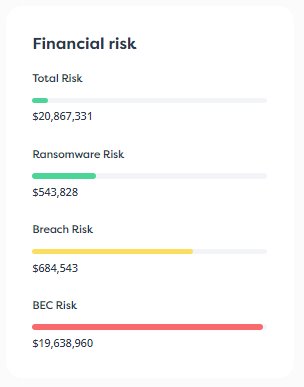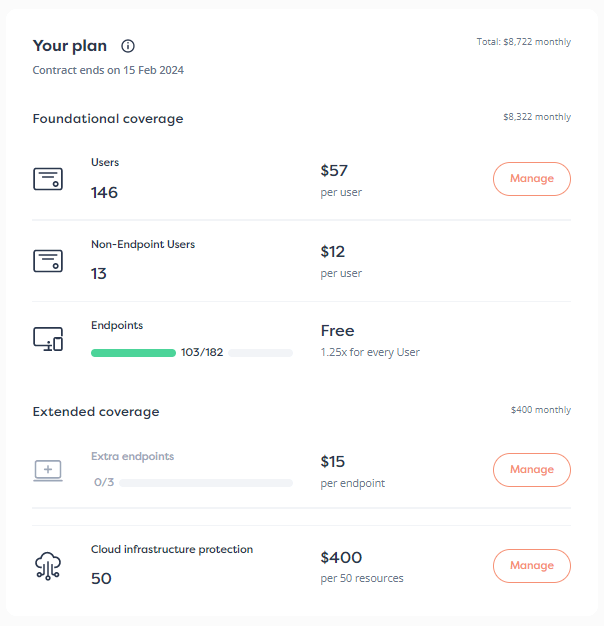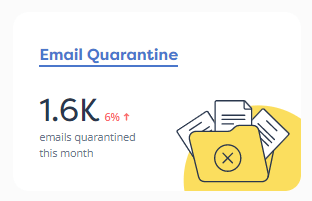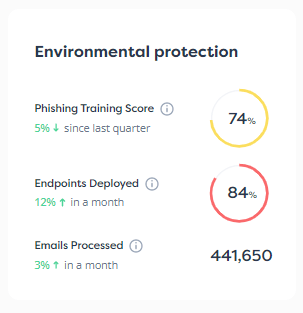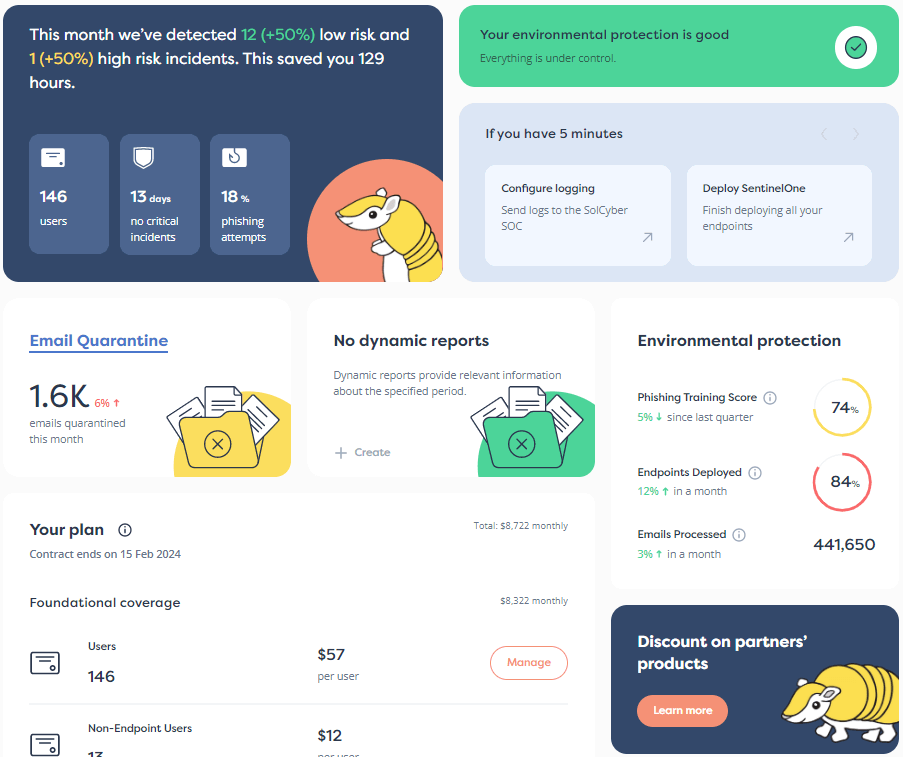

One common misconception about cybersecurity is that small businesses mean small cyber risks; but, in fact, businesses of all sizes need to stay vigilant in the face of cyber threats.
As distressing as those stats are, the worst news comes after a cyberattack. It is estimated that 60% of small businesses closed their doors within 6 months of a breach – meaning the hack was so bad that it left irreparable damage in its wake.
Getting to a level of cyber resilience to fend off these attacks is a challenge for any business, but it’s particularly difficult for small to mid-sized businesses (SMBs). Let’s go through the key barriers and what you can do to overcome them.
As a startup ourselves, we understand the drive and focus on your core business, whether it’s delivering a SaaS service or creating a new fashion brand. The team is out there talking to customers, developing new features, or talking to new investors.
In almost every case, security is not prioritized. The implications, however, have never been bigger:
Ignorance is no longer an option. It’s important to understand cyber risk whether you’re a 10-person consulting firm or a fast-growing cloud startup.
If you’re a retailer, small e-commerce company, or another small local business, you may not be able to devote much of your budget to large security teams or a bunch of tools. Conversely, you may have some budget for tools, but not the team to manage the tools.
Let’s say you have some limited budget; how do you prioritize what technology to invest in? There are over 3500 security vendors, and they all claim to keep your business safe. Should you get them from a single vendor or diversify the tech stack? You can’t afford many of the vendors in Gartner’s reports, so how can you validate which solutions work? Whether you have a security background or not, it’s tough trying to maximize your dollar.
Ok, now that you’ve spent your savings on some security tools, who’s going to manage them? Even if you have the budget to hire someone to help, it’s almost impossible to find and keep security talent. As of 2022, there is a cybersecurity workforce gap of 3.4 million. That hole will take quite some time to fill.
Even though we know the threat landscape looks much different than it did just a few years ago, it can be hard for IT leaders in small businesses to argue for additional funding beyond the initial cybersecurity investment.
Yet, in recent years, cybercrime that evades basic hygiene, firewalls, and antivirus software, has permeated and flourished. The first ransomware worm, WannaCry, debuted in 2017 and spread due to a Microsoft vulnerability that went unpatched on many machines. The level of sophistication has grown exponentially since then.
Social engineering tactics have become more common, such as spear phishing. This is a highly targeted form of phishing where bad actors pretend to be someone in the organization or a contact the recipient knows to acquire personal information, gain access to sensitive data, or intercept a payment. Even with basic safeguards in place, these emails can infiltrate your employee’s inbox.
To defend against today’s attacks, it’s imperative that cybersecurity investments transition to user-centric security – protecting your company no matter where employees are working or where data is stored.
For the most comprehensive protection, small businesses need to level up. It’s not enough to think that your cybersecurity vulnerabilities will be less impactful than those affecting Fortune 500 companies – you need to treat incoming threats with the same level of gravity. Even if you already work with a managed service provider (MSP), you want to make sure you’re working with a partner that offers you enough coverage.
Many small businesses use MSPs, but their security capability and knowledge are not sufficient to cope with the increased sophistication of cyber threats we’ve seen in recent years. Finding an MSP that can help you reach a higher level of compliance and coverage is essential.
Partnering with a managed security service provider (MSSP) can help small businesses improve their security quickly. A modern MSSP like SolCyber is available 24/7 and works like an outsourced cybersecurity department. Unlike some MSSPs, SolCyber offers our own security tech stack – lifting the responsibility to procure and manage one from your internal IT team.
We understand that small businesses take pride in their humanity, and SolCyber enjoys offering a human touch to our services. We work closely with our clients to advise, guide, and protect them. For added coverage, organizations can opt into incident response (IR) and improve their security profile to apply for affordable cyber insurance coverage – an important step to further de-risk your business.
SolCyber offers simple, straightforward pricing, a leading tech stack to keep you covered, and the ability to get started in days. When you’re ready to protect your small business against cyber threats, we’re here to help. Contact us today for more information!


By subscribing you agree to our Privacy Policy and provide consent to receive updates from our company.


